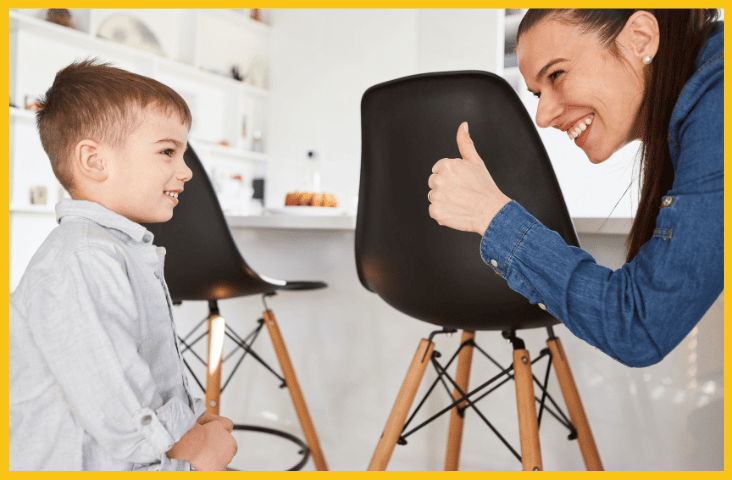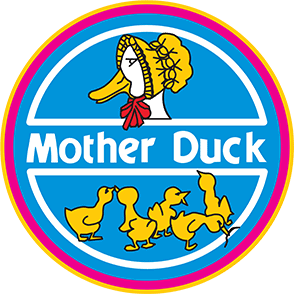
The Power of Positive Discipline: Building a Strong Foundation for Children
As a parent of young children, you’d be no stranger to the rollercoaster ride of emotions that come with navigating some of their more challenging behaviours. From tantrums in the grocery store to refusal to share toys with siblings, these moments can leave us feeling overwhelmed and unsure of how to respond. Society often tells us that punishment is the go-to solution – a firm “no” or a time-out to correct misbehaviour. However, what if there’s a better way?
What if we could shift our perspective and embrace a more compassionate approach that not only addresses behaviour but also nurtures our children’s emotional and social development? Enter positive discipline – a gentle yet powerful approach that challenges conventional wisdom and offers a path towards building strong, resilient children. Positive discipline empowers us to navigate the challenges of parenting with empathy and understanding, and also helps our children build important, lifelong skills.
Understanding Positive Discipline:
Positive discipline is more than just a parenting strategy; it’s a philosophy grounded in respect, empathy, and encouragement. Unlike traditional punishment-based methods that rely on fear or shame to correct behaviour, positive discipline focuses on teaching and guiding children through positive reinforcement, modelling desired behaviours, and fostering open communication.

Positive reinforcement:
Imagine your preschooler voluntarily shares their favourite toy with a friend. Instead of simply acknowledging the act, you heap on the praise: “Wow, I’m so proud of you for being such a great sharer! That was incredibly kind of you.” Positive reinforcement involves recognising and celebrating these moments of goodness, reinforcing the behaviour you want to see more of.
Example:
You notice your child, sharing his favourite truck with his younger sister without any prompting. You immediately encourage him, saying, “Ethan, I saw you sharing your truck with your sister just now. That was so thoughtful of you! You’re such a kind big brother.” Ethan beams with pride, encouraged by your positive reinforcement.
Modelling desired behaviours:
Children are keen observers, constantly learning by watching the adults around them. By modelling desired behaviours ourselves, we provide powerful examples for our children to emulate. Whether it’s demonstrating patience during a challenging moment or showing empathy towards others, our actions speak volumes.
Example:
During a frustrating moment when your computer crashes and you lose your work (we’ve all been there right?!), you might take a deep breath and calmly say, “Looks like my computer is having a tough day. Let’s take a break and try again later.” Your preschooler witnesses this and later mirrors this calm response when his tower of blocks topples over.
Open Communication:
Effective communication is essential in positive discipline, as it fosters understanding, empathy, and cooperation. By creating a safe space for our children to express their thoughts and feelings, we strengthen our bond and empower them to navigate challenges with confidence.
Example:
When your child becomes upset after her friend takes her toy, you might sit down with her and say, “It seems like you’re feeling sad because your friend took your toy without asking. Do you want to tell me about it?” Through open communication, your child feels heard and understood, and together you can brainstorm ways to resolve the situation peacefully.
Why discipline prevails over punishment:
Now, let’s delve into why positive discipline reigns supreme over punishment when it comes to nurturing confident and compassionate children.

Discipline focuses on teaching and guiding:
Positive discipline isn’t just about correcting behaviour; it’s about teaching and guiding our children to make positive choices independently. Instead of focusing solely on what they did wrong, we highlight and reinforce the behaviours we want to see more of, empowering them to become responsible decision-makers. Positive discipline is about supporting our children to develop the skills they need to more effectively manage a similar situation next time.
Example:
When your child forgets to put away his toys after playing, instead of reprimanding him, try saying “Sam, I noticed your toys are still out. Let’s work together to tidy up before dinner. Can you put away the blocks while I gather the stuffed animals?” By involving Sam in the solution, you teach him responsibility and teamwork.
Discipline nurtures mutual respect and empathy:
Positive discipline fosters mutual respect and empathy between parents and children, creating a nurturing environment where both parties feel valued and understood. By treating our children with empathy and respect, we strengthen our relationship and build trust.
Example:
When your child accidentally spills his juice all over the table, instead of getting upset, you can say,, “Uh-oh, looks like we had a little spill. Let’s clean it up together.” By responding with empathy and understanding, you show your child that accidents happen and that you can handle them together. He learns that it’s ok to make mistakes and that he can ask for help to fix them in the future.
Discipline promotes long-term behaviour change:
Unlike punishment, which may create temporary compliance through fear or coercion, positive discipline promotes lasting behaviour change by addressing the underlying reasons for behaviour and then teaching valuable life skills such as problem-solving and emotional regulation.
Example:
When your preschooler hits his friend during a playdate, instead of immediately reprimanding him, you can take a moment to understand his feelings. You may then gently say, “Oliver, I see that you’re feeling frustrated, but hitting is not okay. Let’s find a better way to express your feelings next time.” By addressing the underlying emotion and offering guidance, you can help your child develop healthier ways of coping with his feelings.
Problems with punishment:
While punishment may seem like a quick fix, it often comes with its own set of problems:
Fear and Resentment:
Punishment based on fear or shame can lead to feelings of resentment and defiance in children. Instead of fostering understanding and cooperation, it creates a rift in the parent-child relationship.

Temporary compliance:
Punishment may yield temporary compliance, but it fails to address the underlying causes of behaviour. Children may comply out of fear of consequences, but they haven’t learned why their actions were inappropriate or how to make better choices in the future.
Lack of emotional development:
Punishment often focuses solely on behaviour correction without addressing the emotional needs of the child. It misses the opportunity to teach emotional regulation and empathy, essential skills for navigating social interactions and relationships.
Negative impact on self-esteem:
Repeated punishment can erode a child’s self-esteem and sense of self-worth. Constant criticism and punishment can lead children to believe they are inherently “bad” or incapable of doing things right, hindering their confidence and resilience.
Escalation of behaviour problems:
In some cases, punishment can actually escalate behaviour problems rather than resolve them. When children are made to feel bad about their actions, we increase their stress load which makes them more likely to act in undesirable ways.
By contrast, positive discipline addresses these issues by focusing on teaching, guiding, and nurturing children’s emotional and social development. It emphasises empathy, communication, and problem-solving skills, fostering a positive parent-child relationship built on mutual respect and understanding.
Practical strategies for implementing positive discipline:
Now that we understand the pitfalls of punishment let’s explore practical strategies for implementing positive discipline in our daily lives.

Establish clear expectations:
Set clear and age-appropriate expectations for behaviour, and communicate them positively. Instead of saying, “Don’t run,” (now your preschooler is focused on the ‘run’ part of your question), try saying, “Let’s walk inside to keep ourselves and everyone around us safe.”
Example:
Before heading into a restaurant, Tom tells his preschooler, Lily, “Remember, Lily, inside voices and walking feet while we’re in the restaurant, so no one gets hurt. If you’re having trouble with this, let me know and I will help you.”
Use positive language:
Choose positive language when guiding or redirecting your child’’s behaviour. Instead of saying, “Stop shouting,” try saying, “Let’s use our indoor voices, please.”
Example:
When you hear your toddler shouting from the other room, try, “Emma, I love hearing your enthusiasm, but let’s use our indoor voices so we don’t wake your brother. If you need to be loud, we can go outside to play”
Offer choices:
Empower your child by offering them choices whenever possible, allowing them to feel a sense of control and independence within reasonable limits.
Example:
During snack time, instead of dictating what snack your child can have, try offering two (both acceptable) choices, “Alex, would you like an apple or a banana for your snack today?”

Consistency and follow-through:
Consistency is key in positive discipline. Stick to your expectations and let your child know what the boundary is, and how you will uphold it for them so everyone can continue to feel safe.
Example:
If your child is throwing a toy and you are worried they may hit someone, you can set a clear boundary by saying, “Alex, if you keep throwing the dinosaur, I will have to hold it onto it for you so that no one gets hurt”
Positive discipline isn’t just a parenting technique; it’s a transformative approach that fosters respect, empathy, and cooperation. By embracing the principles of positive reinforcement, modelling desired behaviours, and fostering open communication, we empower our children to become confident, compassionate, and resilient individuals. So let’s leave punishment behind and unleash the power of positive discipline to create a nurturing environment where our children can thrive and grow.
Sarah Conway is a child and adolescent psychologist, mother of 4, and founder of Mindful Little Minds. She has over 15 years of experience working in mental health with children, teenagers, and families. Sarah’s mission is to help parents move away from punitive parenting strategies and towards mindful, intentional parenting that builds emotional intelligence in children and parents alike. As a busy mum herself, she knows firsthand how difficult mindful parenting can be, particularly when it was never modelled by our own parents. That’s why she provides parents and children with simple, practical strategies and tools that help them learn to manage emotions – together. She believes that changing the way we parent will change the world.


